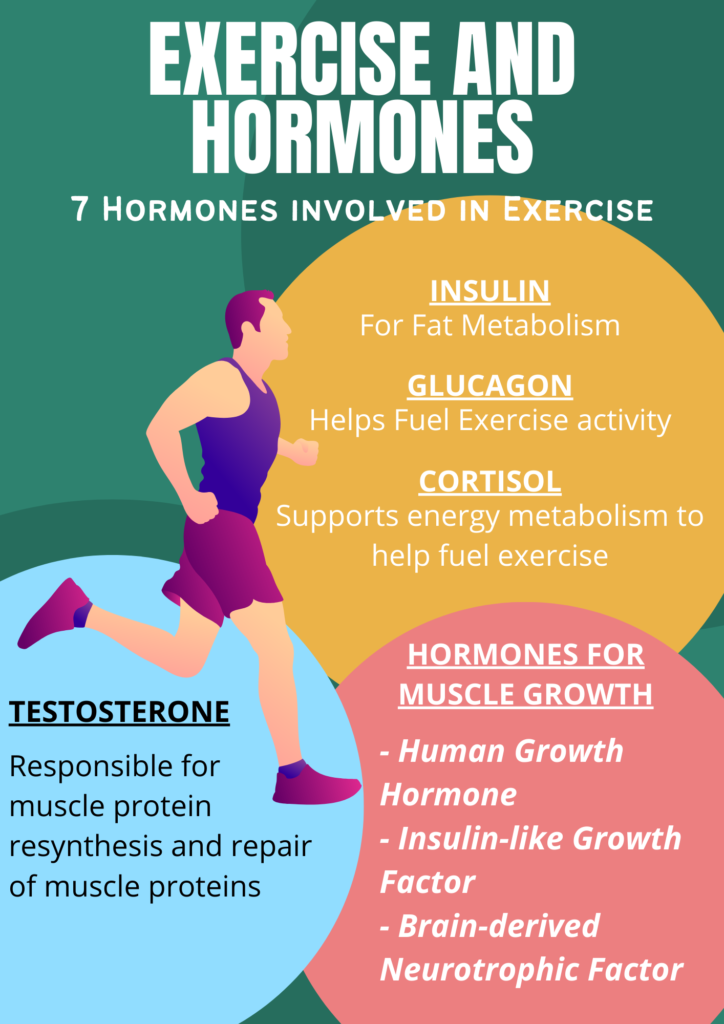As you exercise, you may not realize that there were hormones that are at work to help you keep going. Our endocrine system works to regulate the production of hormones, which are chemicals that control our bodily functions.
Our hormones control several physiological reactions in the body including energy metabolism, reproductive processes, tissue growth, hydration levels, building muscle, burning fat, and even our mood.
It is from here that the need to identify and understand which hormones are at work as we exercise and how they can influence our workouts.
1. Insulin
Insulin may sound familiar, especially if we know someone or we are being treated for diabetes. Insulin’s actual work is to regulate carbohydrate and fat metabolism. When blood sugar is elevated, insulin is released to promote the storage and absorption of glycogen and glucose. Insulin however can cause fat to be stored instead of being used to fuel muscle activity hence it is important to avoid sugary foods or anything with high sugar levels.
2. Glucagon
Glucagon is produced by the pancreas to stimulate the release of free fatty acids that helps to fuel exercise activity. Glucagon is released in response to low levels of blood sugar.
3. Cortisol
Cortisol is produced in response to stress, low blood sugar, and exercise. This hormone supports energy metabolism to help fuel exercise. Cortisol is released when the body experiences too much physical stress and it helps promote fat metabolism.
4. Testosterone
Testosterone, common in males, is responsible for muscle protein resynthesis and the repair of muscle proteins that were damaged by exercise and plays a significant role in helping grow skeletal muscle.
5. Human Growth Hormone
Human growth hormone, also known as HGH, works to produce bodily responses that are responsible for muscle growth, immune system function, and fat metabolism.
6. Insulin-like Growth Factor
Insulin-like growth factor, or IGF, is almost identical to insulin in structure and simulation. It supports HGH in repairing damaged proteins during exercise which makes it an important hormone for promoting muscle growth.
7. Brain-derived Neurotrophic Factor
Brain-derived neurotrophic factor, or BDNF, helps stimulate the production of new cells in the brain that helps in the production of HGH and IGF which helps in muscle growth.
Now we have at least a glimpse of how hormones work as we exercise, this would help us in developing effective exercise programs with the help of our dedicated fitness trainers. Our understanding of these exercise-related hormones can help us determine the outcome of an exercise program to reach our health goals.
